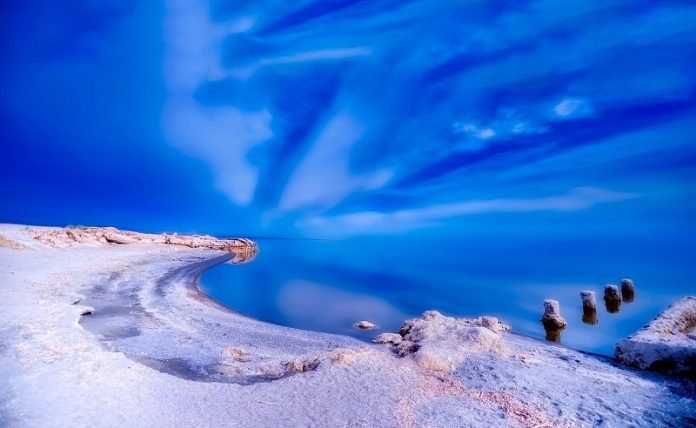
In the southeastern part of California, there’s a big buzz about something called “white gold.”
This isn’t about jewelry—it’s about lithium, a super important ingredient for making batteries for electric vehicles (EVs).
The Salton Sea, a big salt lake in this area, is turning out to be a treasure trove of lithium. Experts from the U.S. Department of Energy have found that there’s enough lithium here to make batteries for more than 375 million electric cars.
That’s a lot, especially considering there aren’t even that many cars on U.S. roads right now!
This discovery is super exciting for a couple of reasons.
First, it’s great for the planet. We’re trying to use more clean energy, and lithium is key for this because it powers electric cars and other green technology. Second, it could help the U.S. rely less on other countries for important stuff like this.
But, as with most things, it’s not all good news.
While experts are thrilled about this lithium “gold rush,” they’re also worried about some big issues. One of them is the environment. Lithium doesn’t just appear out of thin air.
It has to be mined, and that process can be tough on nature. There’s a special way of getting lithium from places like the Salton Sea, using something called “geothermal brine lithium recovery.” It’s supposed to be a cleaner method, but experts are still figuring out all the details.
Another concern is about the people living around the Salton Sea. This area is one of the poorer parts of California, with a lot of Latino residents who don’t always get a fair say in big decisions.
The Salton Sea itself is shrinking, which is causing dust storms that are really bad for people’s health. Kids in particular are suffering, with lots of them having asthma and other breathing problems.
The situation is a bit of a catch-22. On one hand, mining lithium here could reduce our need for fossil fuels, which is good for the planet. But on the other hand, we’re not totally sure how this mining might affect the local environment and the health of the people living there. It’s important that in our rush to find cleaner energy, we don’t end up causing new problems, especially for communities that are already facing a lot of challenges.
In the end, it’s a big balancing act. We need materials like lithium for our clean energy future, but we also have to make sure we’re not harming our planet or people in the process. The story of California’s “white gold” rush is a reminder that every big discovery comes with big responsibilities.



